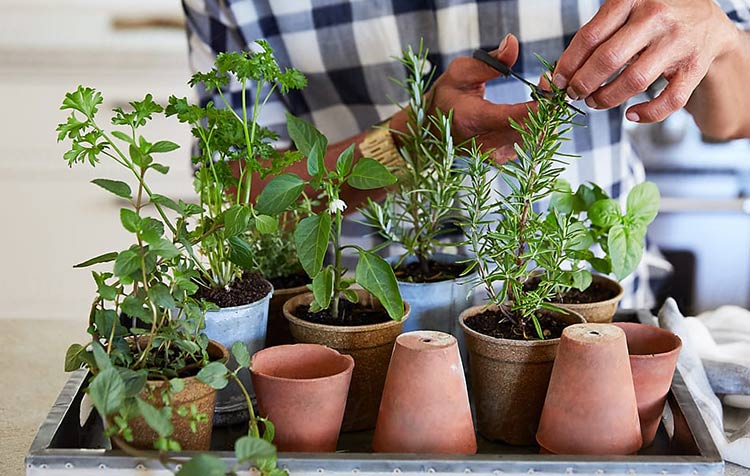What actually is Urban Gardening? Sowing, caring, harvesting - sustainable gardening enjoys increasing popularity. Fortunately, the hobby is no longer the preserve of allotment gardeners and homeowners. As an environmentally friendly and space-saving leisure activity, it also has many followers in the form of urban gardening in city centers.
In the following post, I'll explain what's behind urban gardening, how it works, and what specifics you should keep in mind when getting started. Let's go!
Here in advance a short Table of contents about the article:
Gardening in the city - close to nature
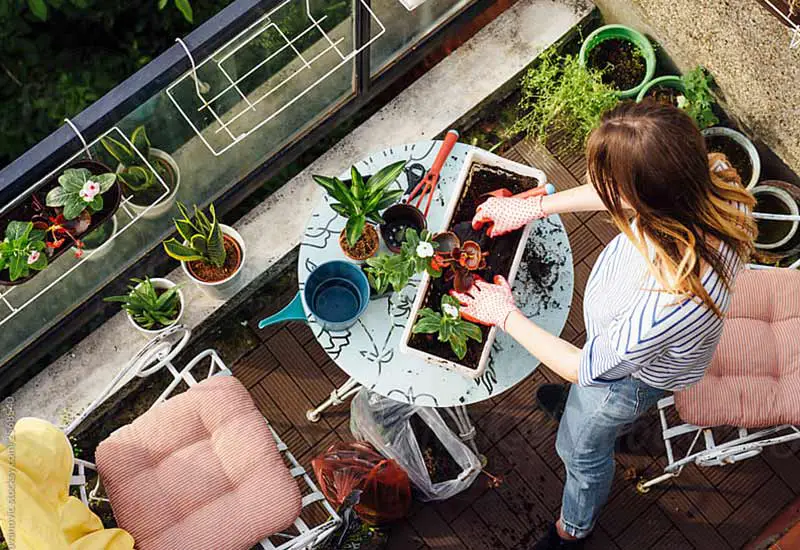
Urban gardening (or urban horticulture) refers to the horticultural development and use of mostly small-scale, inner-city areas.
Natural soils are asphalted and green spaces are replaced by concrete deserts. Trees, shrubs and flowers hardly find room to flourish. Urban gardening emerged as a logical consequence of the increasing development of cities. In metropolitan areas in particular, nature-loving city dwellers were looking for a way to turn the cold gray into fresh green. This was the birth of urban gardening, in which passionate hobby gardeners plant flowers, herbs, fruit and vegetables on communal terraces or their own balconies in the city.
Five advantages - What is appealing about urban gardening?
There are very different aspects that urban hobby gardeners appreciate about urban gardening. In addition to the sustainability component, financial and social aspects also play a role. These are the most important advantages at a glance:
1. experience nature
The sight of fresh carrots, ripe strawberries and blooming hydrangeas on the balcony at home. gives the senses a time out from the hectic life in the city. They enchant with their bright colors and pamper your nose with fresh air. In this way, urban gardening transforms a bare balcony into a relaxing oasis. So you can in principle Spend time outside in nature, without having to drive out of the city for a long time.
2. eat healthy
It is not only flowers that are suitable for gardening in the city. Vegetables - such as tomatoes, carrots and radishes - and berries you can easily plant and harvest repeatedly. Food from your own cultivation are regional, seasonal, 100 percent free of pesticides. In addition, they have a more aromatic taste.
Tip: How you Growing tomatoes yourself you can read in the linked article!
3. live environmentally friendly
Conventional, area-wide cultivation of vegetables, berries and fruits is carried out in many countries under Use of plant protection products and chemical fertilizers. In combination with the long transport routes and a mostly extremely high Water consumption this is a burden on the environment. With the cultivation on your balcony you are setting an example for a sustainable lifestyle in harmony with nature.
4. save money
For families in particular, the cost savings are a major benefit of urban gardening. Trips to parks and recreation areas are expensive and time-consuming. By planting your balcony or terrace you create your own piece of nature in your home. Expensive trips to the countryside are unnecessary. In addition, certain vegetable and berry bushes bear fruit repeatedly, saving you money on grocery shopping. In this way, you can save Sustainability Save money.
5. meet like-minded people
Sharing experiences, solving problems and staying motivated - it's also the social component that makes gardening in the city so magical. You can find people who share your passion on the Internet and in community gardens. For many, that's a very crucial benefit of urban gardening.
Urban gardening with children - A hobby for the whole family
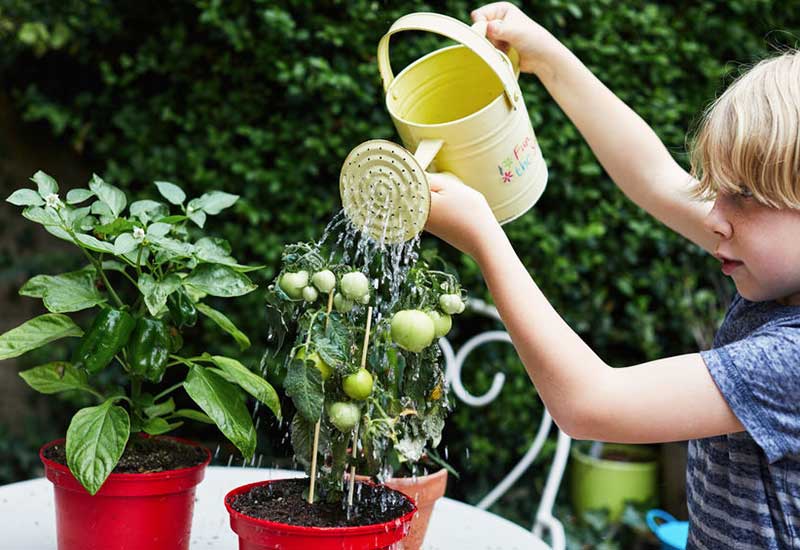
Urban gardening is even more fun when you do it together with your loved ones. Especially for children, planting, harvesting and snacking on delicious fruits and vegetables is an exciting activity. Gardening together with your little ones is the perfect opportunity to teach them about environmental protection, healthy eating and nature in a playful way. (more also under Environmental protection with children)
Involve your offspring in all steps - such as the design of the beds and the selection of seeds - to generate enthusiasm. This increases the anticipation and euphoria of the little hobby gardeners. Grow common varieties like cress and chives in the beginning. Thanks to their rapid growth, they give your children their first sense of achievement after just a few days.
Keep the motivation of the little ones for urban gardening constantly high by setting a good example. The fun factor should not be neglected. Use interesting Do-It-Yourself Projects - like making seed bombs or growing pots - as a regular pick-me-up. Urban gardening shows your kids how to learn from mistakes and overcome challenges.
Urban gardening - get started with these five tips
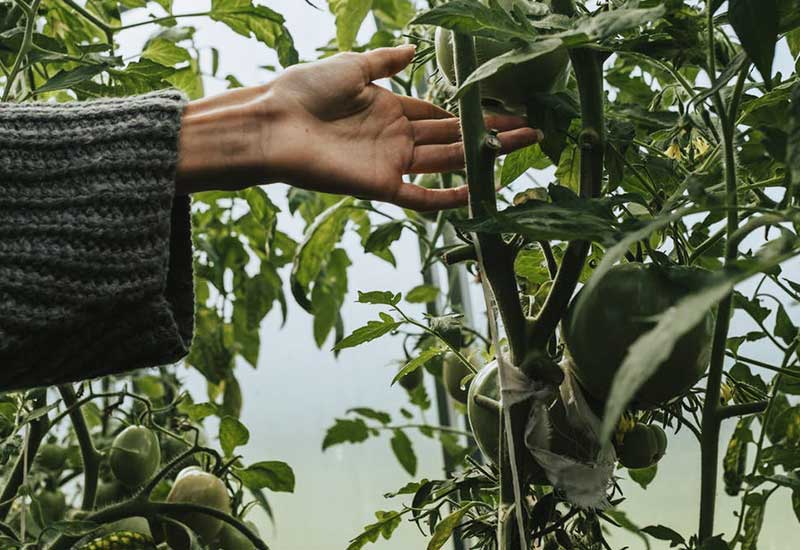
Have you got the urge for urban gardening? Then I would like to give you a few important tips for getting started as easily as possible.
1. consider the available space
As a first step you should Examine the conditions of your balcony or terrace. This is essential for the selection, planting and arrangement of beds. On this point, the geographical location also plays a role. While strawberries and peppers like to sunbathe, mint and parsley prefer a semi-shaded place.
Tip: Want to make your balcony or patio more insect and bird friendly? Then be sure to check out my posts about the Bird friendly garden and bee friendly garden in!
2. choose the right varieties
Once the beds are built, you can start selecting seeds. Base this decision on your personal preferences, time and expertise. As a beginner, low-maintenance, hardy varieties such as carrots and basil are a good choice. As your experience level increases, you can gradually expand your assortment.
3. consult a planting calendar
Gardening includes the phases Sowing, care, harvest and Wintering. The right time varies from plant to plant. In addition, there are varying requirements for soil moisture, bed neighbors and the distance between the seeds. With a Planting calendar you keep track and bring your vegetables, fruits and herbs healthy through the year.
4. exchange ideas with like-minded people
Urban horticulture thrives on exchange with others. In Hamburg, Berlin and Munich, it will on communal roof terraces operated. The number of these collective gardens is constantly growing. There you can meet other hobby gardeners, get advice and gather inspiration. If there is not (yet) a collective garden in your city, there are Internet forums and the social networks as an alternative an.
5. stay motivated
Mistakes and failures are normal in the beginning. Nature is not perfect and you don't have to be either. Don't be discouraged by small setbacks, but learn from them. What went wrong and how can you do it better next time? Stay inquisitive, relaxed and positive - then success will come all by itself.
Can you think of any other tips? Then always give it to me in the comments!
Urban Gardening - A look into the future
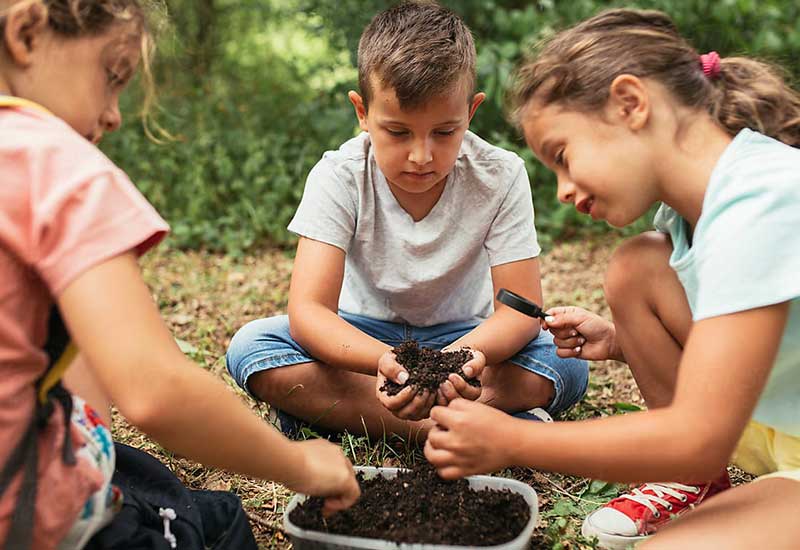
Urban gardening is an environmentally friendly, uncomplicated and inexpensive hobby for young and old. It Conjures a touch of nature in the cold, stone metropolises and is an important step on the way to a green city.
With the help of these tips, your entry into the world of urban gardening is guaranteed! Simply set aside your demand for perfection and view your sustainable leisure activity as a continuous learning process. You'll have plenty of time to experiment, because one thing's for sure: urban gardening is not an ephemeral trend, it's a future-oriented development.
Do you have any questions or suggestions about this post about gardening in the city? Then I look forward to your comment!
Stay sustainable,

PS: Do you have ivy near you? Learn now how to grow your own Ivy dishwashing liquid you make yourself!

